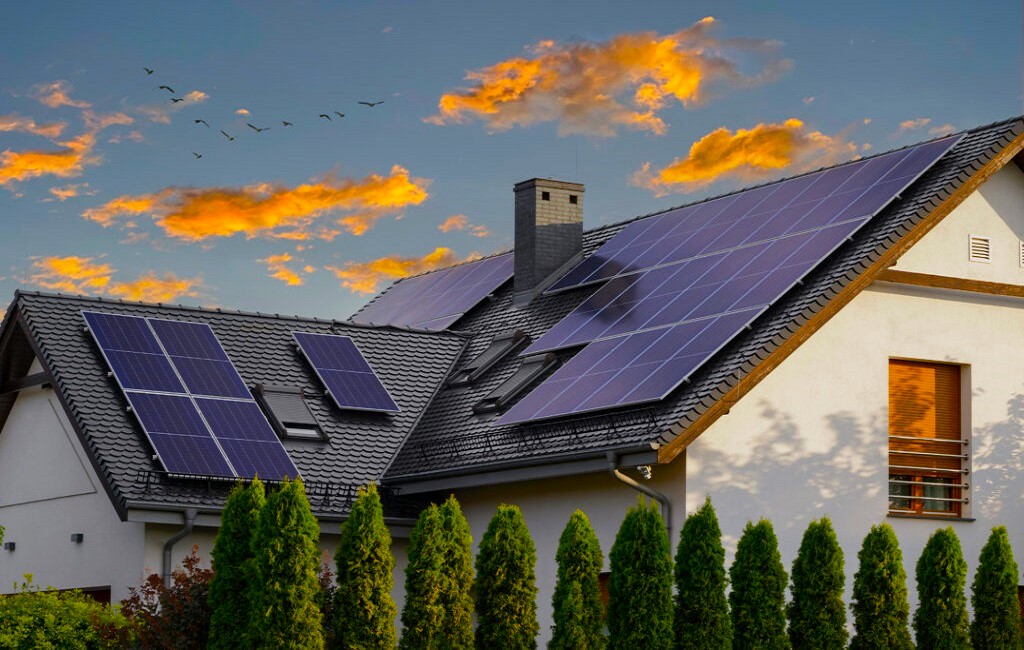
27 Dec Maximizing Solar Energy Savings with Home Battery Backup
Solar energy has become an increasingly popular choice for homeowners seeking to reduce their carbon footprint and lower their electricity bills. However, the intermittent nature of solar power, dependent on sunlight availability, can pose challenges. This is where home battery backup systems come into play, offering a solution that maximizes solar energy savings and enhances energy resilience. This article will explore how home battery backup systems can help homeowners make the most of their solar investment.
Understanding Home Battery Backup Systems
Home battery backup systems, or solar-plus-storage systems, are designed to store excess solar energy generated by solar panels during sunny days. Instead of letting this surplus energy go to waste, it is stored in batteries for later use. Here’s a breakdown of how these systems work:
- Solar Generation: Solar panels capture sunlight and convert it into electricity during daylight hours. This electricity powers your home’s appliances and feeds any excess energy back to the grid.
- Battery Storage: Home battery backup systems include lithium-ion batteries that store the surplus energy generated by the solar panels. These batteries are designed to charge and discharge efficiently.
- Energy Independence: When the sun sets or during power outages, your home can draw from the stored energy in the batteries, reducing your reliance on the grid.
Benefits of Solar Energy
Before delving into the advantages of home battery backup, it’s essential to understand why solar energy is an attractive option:
- Lower Electricity Bills: Solar panels harness free energy from the sun, reducing or even eliminating your monthly electricity bills.
- Environmental Benefits: Solar power is clean and renewable, producing no greenhouse gas emissions or air pollutants, making it an environmentally friendly choice.
- Energy Independence: Solar energy gives homeowners a degree of energy independence, reducing reliance on utility companies.
The Need for Energy Storage
Despite the clear advantages of solar energy, its intermittent nature can lead to energy wastage. During sunny days, solar panels produce more electricity than a household consumes. This excess energy is either sent back to the grid (if you have a grid-tied system) or goes unused. With an effective energy storage solution, you may reap the full benefits of your solar investment.
How Home Battery Backup Enhances Solar Savings
Home battery backup systems bridge the gap between solar generation and energy consumption, allowing homeowners to make the most of their solar energy production:
- Storing Excess Solar Energy: When solar panels produce more energy than your home needs, the surplus is stored in the batteries. This stored energy can be used when your panels are not generating electricity, such as at night or on cloudy days.
- Energy Independence: Home battery backup systems offer energy independence during power outages. While your neighbors may experience blackouts, your home can continue to run on stored solar energy.
- Peak Demand Management: Many utility companies charge higher rates during peak demand periods. With a home battery backup, you can avoid peak-rate charges by using stored energy during these times, further reducing your electricity bills.
Solar Plus Storage Incentives
Governments and utilities in many regions offer incentives and rebates to encourage homeowners to invest in solar-plus-storage systems. These incentives can significantly reduce the upfront costs of installing a home battery backup. It’s essential to research available incentives in your area to maximize your savings.
Sizing Your Battery System
The key to maximizing solar energy savings with a home battery backup system is to ensure it is appropriately sized for your needs. Factors to consider include:
- Household Energy Consumption: Determine how much electricity your household consumes on average. This will help you calculate the required battery capacity.
- Desired Backup Capacity: Decide how long you want your home to be powered solely by the battery during outages. A larger battery capacity provides more backup time.
Maximizing Solar Energy Use
To further optimize your solar energy savings with a home battery backup system, consider implementing the following strategies:
- Energy-Efficient Appliances: Invest in energy-efficient appliances and lighting to reduce energy consumption.
- Smart Thermostats: Install smart thermostats that adjust heating and cooling systems based on your energy production and consumption patterns.
- Home Automation: Implement home automation systems that intelligently manage energy use and battery charging.
Monitoring and Maintenance
Regular monitoring and maintenance are essential to ensure your home battery backup system operates optimally. Some systems come with monitoring software that allows you to track your energy usage and the status of your batteries. Occasional battery maintenance is also recommended to prolong their lifespan.
Conclusion
Home battery backup systems allow homeowners to maximize their solar energy savings and enhance energy resilience. These systems store excess solar energy, provide independence during power outages, and enable peak demand management. When combined with the benefits of solar energy, they offer a sustainable and cost-effective solution for homeowners looking to reduce their carbon footprint and lower their electricity bills. As solar-plus-storage technology continues to evolve, it promises a brighter future for sustainable energy use in households worldwide.



Sorry, the comment form is closed at this time.